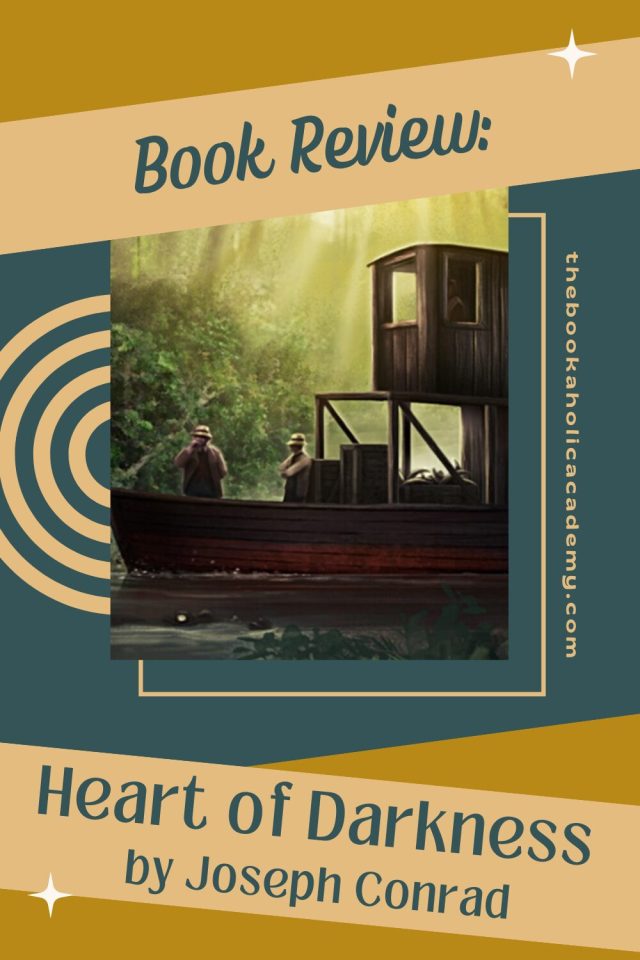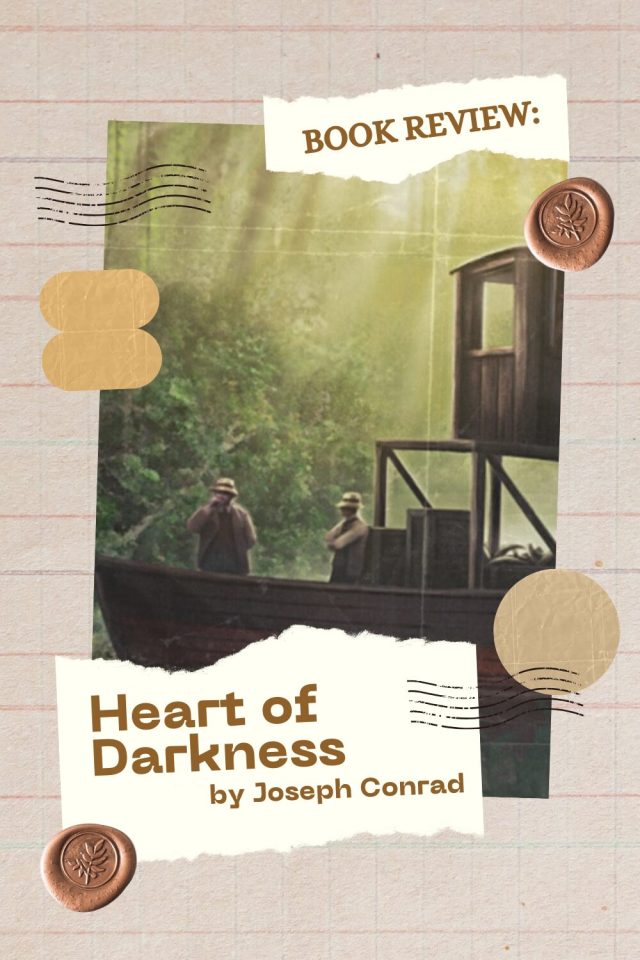Review: Heart of Darkness by Joseph Conrad

Disclaimer
This post may contain affiliate links. I will make a small commission if you make a purchase through one of these links, at no extra cost to you. See full disclosure and disclaimer policy HERE.
If you’ve ever wanted to read a story that feels like a psychological rollercoaster through the deepest parts of human nature, Heart of Darkness by Joseph Conrad is one you can’t ignore. It’s not your typical adventure tale—it’s layered, dark, and makes you question what “civilisation” really means. Let’s dive in and unpack this masterpiece.
Table of Contents
A Quick Glimpse Into the Story
At first glance, Heart of Darkness looks like a travel story about a man named Marlow, who takes a job as a steamboat captain in the Congo during the height of European imperialism. But as the pages unfold, the journey becomes far less about geography and far more about the human soul.
Marlow sails deep into the Congo in search of Kurtz, a mysterious and almost mythical ivory trader. The further he travels, the more he witnesses the cruelty, greed, and exploitation hidden beneath the shiny mask of “progress.” The Congo becomes a mirror—reflecting the darkness not just in the jungle but in human ambition itself.
Themes That Hit Hard
One of the reasons Heart of Darkness is still relevant today is because of the themes it wrestles with.
- Imperialism and Exploitation: Conrad exposes the brutal truth behind colonialism. The so-called “civilising mission” was often nothing more than a ruthless pursuit of wealth.
- The Thin Line Between Civilisation and Savagery: Marlow learns that the civilised world isn’t always as civilised as it seems. In fact, greed strips away all pretenses of morality.
- The Darkness Within: The “heart of darkness” isn’t just the African jungle—it’s the human heart itself. Every character is haunted by their own version of inner corruption.
It’s not just a story about traveling into Africa; it’s about traveling into the darkest parts of ourselves.
The Characters: More Than Just Names
- Marlow: Our narrator, both an adventurer and philosopher, who questions what he sees yet can’t escape the haunting truths he uncovers.
- Kurtz: The ivory trader who becomes the embodiment of power gone wild. His downfall is legendary, summed up in his chilling last words: “The horror! The horror!”
- The Company: Almost a character itself, representing the faceless greed and exploitation of imperialism.
Each character adds a piece to the puzzle, showing how power and corruption twist the human spirit.
The Style: Why It’s Not Always Easy
Let’s be honest: Conrad doesn’t exactly make this a breezy read. His writing is dense, full of metaphors and layered meanings. At times, it feels like wandering through the fog—fitting, since the novel thrives on ambiguity.
But if you push through, the richness of the text rewards you. It’s like peeling an onion: the more layers you uncover, the more it stings—but the flavour is unforgettable.
Why You Should Read It Today
Even though Heart of Darkness was first published in 1899, its message still echoes in our world. It forces us to ask uncomfortable questions:
- What happens when power has no limits?
- How far will humans go in the name of greed?
- Are we really as “civilised” as we think?
Whether you read it as a critique of colonialism, a psychological exploration, or simply as an eerie adventure, Conrad’s novel remains hauntingly relevant.
Conclusion
Heart of Darkness isn’t just a book—it’s an experience. It’s unsettling, thought-provoking, and timeless. Joseph Conrad doesn’t hand us easy answers, but instead, he leaves us staring into the abyss of human nature. If you’re ready for a read that challenges your mind and lingers long after the last page, this novel deserves a spot on your shelf.
FAQs
Did you like it? Pin this post for later!












